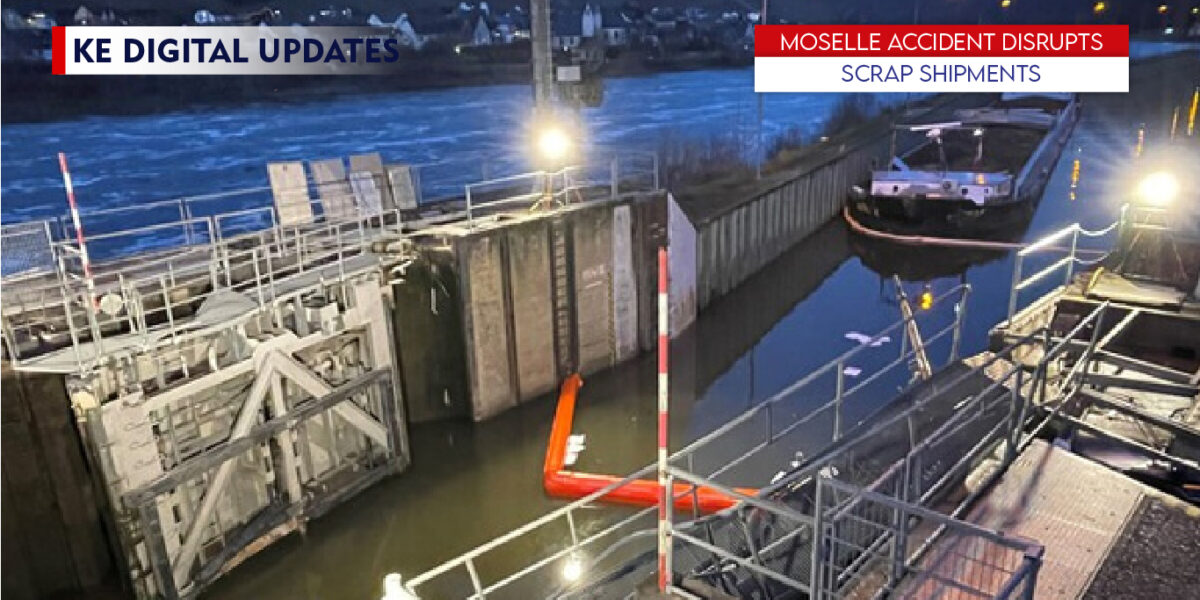Published on December 11, 2024
On December 8, 2024, a significant incident occurred on the Moselle River when a cargo ship carrying 1,500 metric tons of scrap metal collided with a lock gate. This crash caused severe damage to the gate, leading to a halt in shipping traffic. The German Waterways and Shipping Authority (WSA) reported that around 70 ships cannot navigate through the Moselle towards Luxembourg, Saarland, and Rhineland-Palatinate. Repairs are expected to take approximately three months, rendering the route inaccessible until March 2025.
Impact on Scrap Shipments
The Moselle River is a crucial supply route for raw materials and resources for many local companies. The disruption of this route is likely to have significant implications for the scrap metal market, especially at the beginning of the new year. The interruption from Luxembourg and Trier to Koblenz is expected to impact scrap supplies, which may cause challenges for companies reliant on this transport route.
Responses from Affected Companies
Despite the disruption, major companies are taking proactive measures to mitigate the impact. ArcelorMittal, a leading steelmaker in Luxembourg, is one of the key players affected by this incident. The company relies on the Moselle River for its scrap metal supplies. ArcelorMittal is working on alternative transport solutions to ensure the disruption does not significantly affect their operations. The company is confident that these measures will help minimize the impact on its supply chain.
Similarly, German scrap exporter Theo Steil, which has three of its largest scrap yards in Trier, will face challenges due to the disrupted shipping route. Other German steelmakers such as Dillinger Hüttenwerke, Georgsmarienhütte Holding, and Saarstahl are expected to have their raw material transports affected by the accident.
Market Reactions
In light of the incident, local scrap collectors have reported reduced scrap collection prices by €5-20 per metric ton. However, this reduction is not directly attributed to the accident itself. Instead, it is seen as a consequence of the general market conditions, characterized by a lack of exports and a subdued domestic scrap market. Many steel mills are not requesting significant scrap volumes, leading to decreased demand and lower prices.
Conclusion
The Moselle River accident has undoubtedly caused logistical challenges for transporting scrap metal towards Luxembourg. While the repairs and route closure will impact shipments, companies like ArcelorMittal seek alternative solutions to mitigate these effects. The broader market conditions, including subdued demand and low steel mill activity, contribute to the scrap price reduction. As the industry adapts to these changes, strategic planning and proactive measures will be crucial to navigate the coming months.


